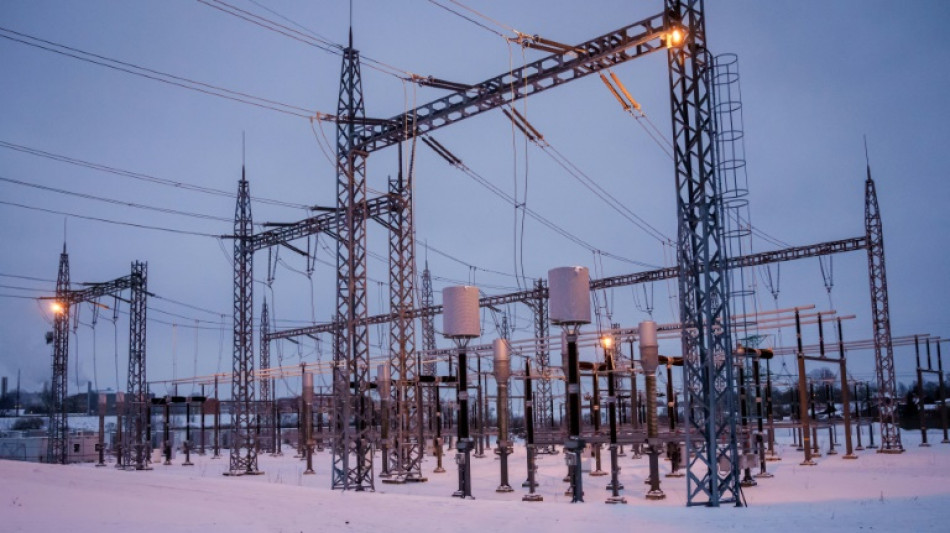
-
 The reluctant fame of Gazan photojournalist Motaz Azaiza
The reluctant fame of Gazan photojournalist Motaz Azaiza
-
Global cocaine market hit new record highs: UNODC
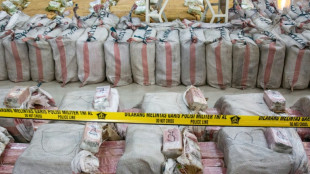
-
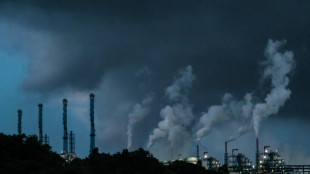 Environment fears over $6 bn Indonesia EV battery project: NGOs
Environment fears over $6 bn Indonesia EV battery project: NGOs
-
Dinusha shines on debut as Sri Lanka bowl out Bangladesh for 247

-
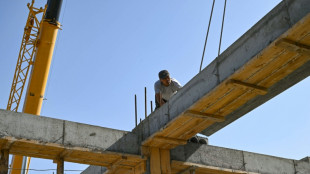 Migrant money from Russia a lifeline for Central Asia
Migrant money from Russia a lifeline for Central Asia
-
Nigerian farms battle traffic, developers in downtown Abuja
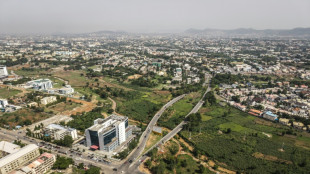
-
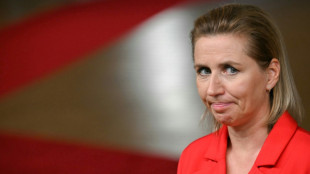 Denmark to push for stricter EU migration policies
Denmark to push for stricter EU migration policies
-
Nearly one-third of Pacific nation Tuvalu seeks Australian climate visa
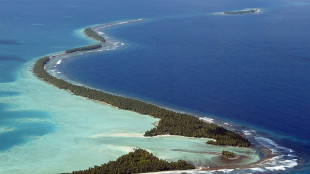
-
 White leads six Wallabies in Force side to face Lions, but no Beale
White leads six Wallabies in Force side to face Lions, but no Beale
-
Thai cannabis stores fret as government moves to tighten rules on sales

-
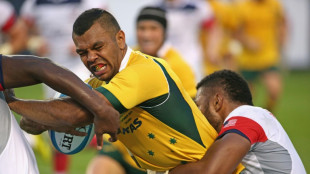 Beale to spearhead First Nations and Pasifika side against Lions
Beale to spearhead First Nations and Pasifika side against Lions
-
Wimbledon: England's garden Grand Slam

-
 Matcha: the Japanese tea taking over the world
Matcha: the Japanese tea taking over the world
-
Inter Milan, Monterrey join Dortmund in Club World Cup last 16

-
 Trail Blazers pick China's Yang in NBA draft first-round surprise
Trail Blazers pick China's Yang in NBA draft first-round surprise
-
Global matcha 'obsession' drinks Japan tea farms dry

-
 US judge sides with Meta in AI training copyright case
US judge sides with Meta in AI training copyright case
-
'Battle of Seattle' as Inter down nine-man River to advance

-
 China hosts Iranian, Russian defence ministers against backdrop of 'momentous change'
China hosts Iranian, Russian defence ministers against backdrop of 'momentous change'
-
Stocks down with eyes on Mideast, dollar hit by Trump Fed comment
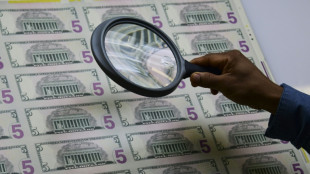
-
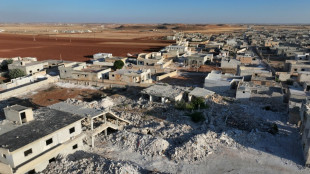 Syrian architect uses drone footage to help rebuild hometown
Syrian architect uses drone footage to help rebuild hometown
-
Verstappen hoping upgrades can boost title defence at Red Bull home race
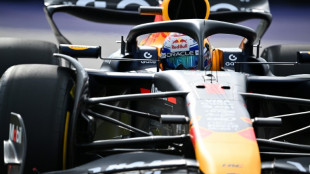
-
 After 'Dune,' Denis Villeneuve to helm next James Bond film
After 'Dune,' Denis Villeneuve to helm next James Bond film
-
Thailand makes new proposal to restrict cannabis sales

-
 Ecuador's most-wanted gang leader 'Fito' captured
Ecuador's most-wanted gang leader 'Fito' captured
-
Tunisia U-turn on phosphate plant sparks anger in blighted city
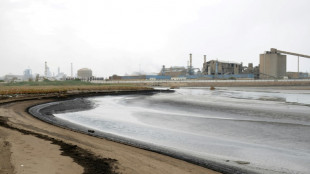
-
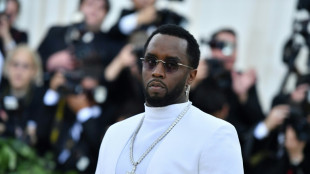 Trial of Sean 'Diddy' Combs heads into closing arguments
Trial of Sean 'Diddy' Combs heads into closing arguments
-
Wallabies release Reds pair Faessler and Paisami for Lions clash
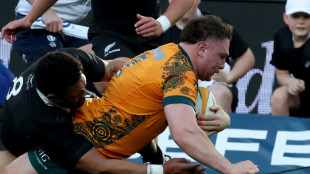
-
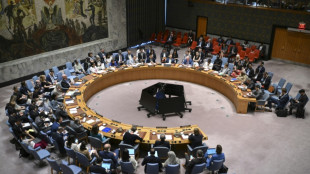 UN Charter: a founding document violated and ignored
UN Charter: a founding document violated and ignored
-
Vinicius, Mbappe have to defend: Real Madrid's Alonso
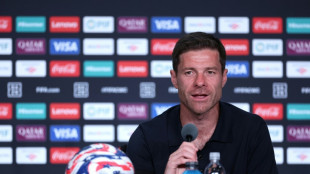
-
 US teen Cooper Flagg chosen by Mavericks with top pick in NBA draft
US teen Cooper Flagg chosen by Mavericks with top pick in NBA draft
-
Guardiola says City must be ready to 'suffer' in Orlando heat
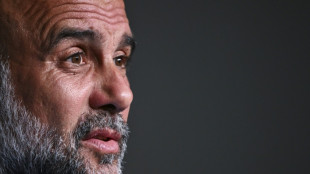
-
 NBA studying uptick of Achilles injuries - Silver
NBA studying uptick of Achilles injuries - Silver
-
On Its Centennial: The Occasion of Replacing the Kiswa of the Noble Kaaba Embodies the Kingdom of Saudi Arabia's Enduring Care for the Two Holy Mosques
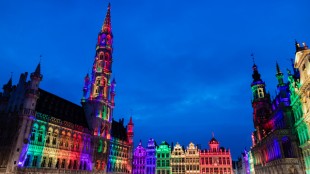
-
 Pacquiao 'hungry' for comeback after four-year layoff
Pacquiao 'hungry' for comeback after four-year layoff
-
'Job done': Sundowns coach proud despite Club World Cup exit
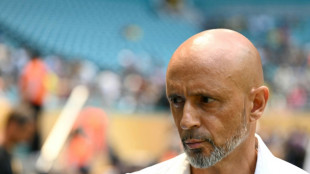
-
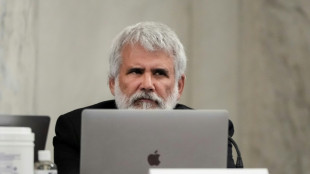 RFK Jr vaccine panel targets childhood vaccinations in first meeting
RFK Jr vaccine panel targets childhood vaccinations in first meeting
-
Tech giants' net zero goals verging on fantasy: researchers

-
 Australia quicks hit back after strong West Indies bowling effort
Australia quicks hit back after strong West Indies bowling effort
-
Dortmund through to Club World Cup last 16, Fluminense deny Sundowns

-
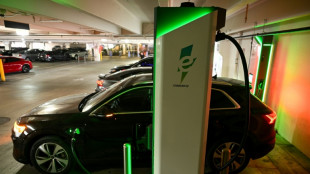 Judge orders Trump admin to release billions in EV charging funds
Judge orders Trump admin to release billions in EV charging funds
-
Sale of NBA's $10 bn Lakers expected to close this year

-
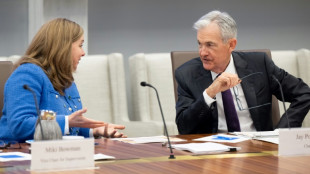 US Fed proposes easing key banking rule
US Fed proposes easing key banking rule
-
Nvidia hits fresh record while global stocks are mixed
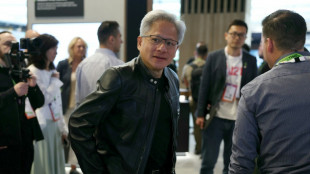
-
 Elliott-inspired England to play Germany in Under-21 Euros final
Elliott-inspired England to play Germany in Under-21 Euros final
-
Gunmen kill 11 in crime-hit Mexican city
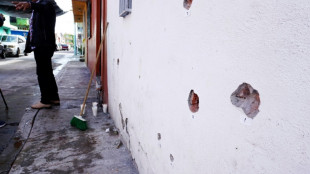
-
 Mbappe absent from Real Madrid squad for Salzburg Club World Cup clash
Mbappe absent from Real Madrid squad for Salzburg Club World Cup clash
-
Sainz opts out of race for FIA presidency

-
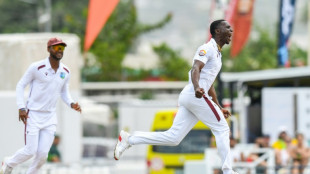 Shamar Joseph rips through Australia top order in first Test
Shamar Joseph rips through Australia top order in first Test
-
Court rejects EDF complaint over Czech nuclear tender
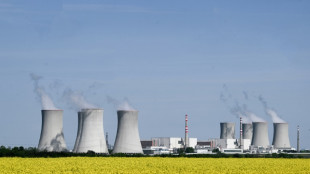

Baltic nations 'successfully' link with European power grid
The three Baltic states successfully connected to the European power grid Sunday after severing Soviet-era links with Russia's network, a shift that EU chief Ursula von der Leyen hailed as "freedom from threats and blackmail".
Estonia, Latvia and Lithuania -- former Soviet states that are now EU and NATO members -- have been planning the switch for years but had been particularly keen to do so since Russia invaded Ukraine in 2022.
The small Baltic countries fear that they too could be targeted. The staunch Ukraine supporters had also worried that Russia would weaponise the electricity grid against them.
"Moments ago, I received great news," Lithuanian President Gitanas Nauseda told reporters in Vilnius, alongside his Estonian, Latvian and Polish counterparts and von der Leyen.
"The synchronisation of the Baltic states' electricity system with the continental European system has been successfully completed... We have achieved full energy independence," he said.
Nauseda also posted a video to X of the moment he received confirmation of the grid connection. "Goodbye Russia, goodbye Lenin," he said on the phone, before von der Leyen and others applauded.
Von der Leyen told reporters 'today history is made".
"Electricity lines with Russia and Belarus are being dismantled. These chains of power lines linking you to hostile neighbours will be a thing of the past," she said.
"This is freedom, freedom from threats, freedom from blackmail."
A total of 1.6 billion euros ($1.7 billion) -- mostly EU funds -- have been invested in the synchronisation project across the Baltic states and Poland.
The Baltics integrated into the European grid via Poland.
- 'Emancipation' -
Polish President Andrzej Duda called the synchronisation "a milestone development... for the entire European Union".
"It is the final step towards emancipation from the post-Soviet sphere of dependence," he added.
Nauseda called for "substantial action at the European Union level" to improve the resilience of the Baltic states' critical infrastructure.
"Now is the time to secure our achievements. Russia's war against Ukraine has radically transformed the perception of the threats to the critical infrastructure in Europe," he said.
"Recent incidents involving undersea infrastructure in the Baltic Sea provide a matter of great concern. And a call for resolute action, as well."
Several undersea telecom and power cables have been severed in the Baltic Sea in recent months.
Some experts and politicians have accused Russia of waging a "hybrid war", including the unconventional targeting of energy supplies, an allegation Moscow denies.
The Baltics had long planned to integrate with the European grid but faced technological and financial issues before the Ukraine war gave the project a jolt of urgency.
They stopped purchasing Russian gas and electricity after the invasion but their power grids remained connected to Russia and Belarus, and so controlled from Moscow.
This left them dependent on Moscow for a stable electricity flow, which is crucial for factories and facilities requiring a reliable power supply.
- 'No surprises' -
The Baltic states disconnected from the Russian grid on Saturday morning.
They then operated as a so-called "energy island" while running tests to assure Europe their system was stable.
The Baltic grid operators said all tests had gone as planned.
Ukrainian Energy Minister German Galushchenko hailed the disconnection as a "significant event for the whole of Europe".
"Such steps deprive the aggressor of the opportunity to use the electricity sector for blackmail and political games," he said Saturday.
Authorities had warned of the potential for sabotage or other disruptions linked to the grid switch, but the disconnection went off without a hitch.
The Baltic grid operators said Russia had cooperated during the process.
Latvian operator AST told AFP the biggest surprise Saturday was "that there were no surprises".
Latvian police said they had recorded no incidents related to the grid switch.
Lithuanian engineer Aras Valiukas, 45 called the event "symbolic".
"We have disconnected from the Soviet Union," he told AFP in downtown Vilnius.
Q.Najjar--SF-PST
